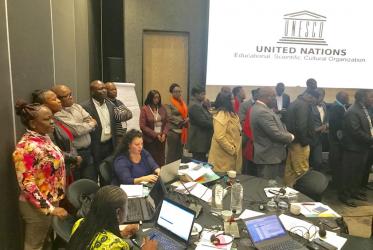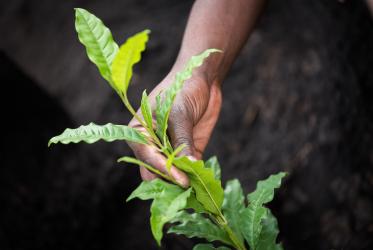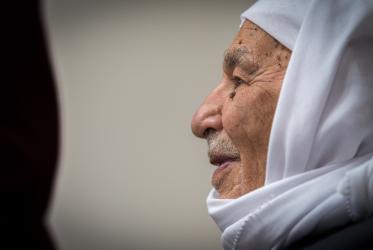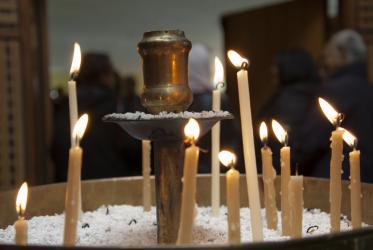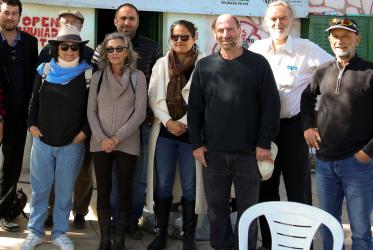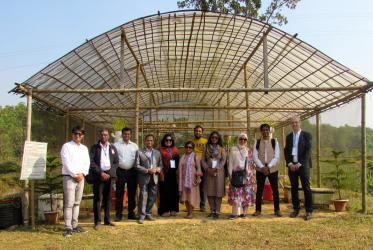Displaying 81 - 100 of 283
12 September 2019
Peacemakers at work in Sri Lanka
29 April 2019
Turning mercy and compassion into action
04 March 2019
Rabbis walk through Hebron in solidarity
07 February 2019
Workshop in Bangladesh links climate, economic justice
07 February 2019
Human fraternity is a divine calling, says WCC general secretary
03 February 2019
Connecting God with work discussed at conferences held at WCC
22 January 2019
A moment in ‘Time’: an interreligious vision in Erlangen
20 December 2018
Young people in Nigeria focus on positive masculinity, femininity
14 December 2018


